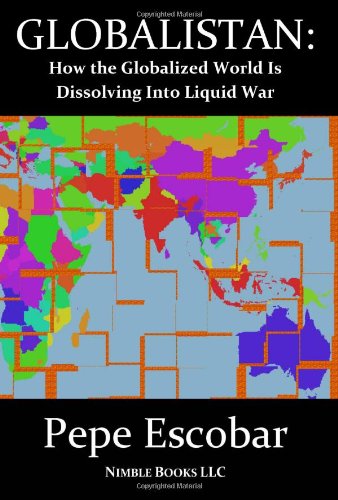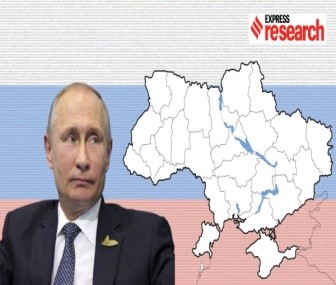The Yemen–Russia Riddle, by Pepe Escobar
Sanaa is eagerly engaging with Moscow in a bid to expand its astounding military gains into both the economic and diplomatic realms. While trade with Russia may be integral to blunting the effects of the siege of Yemen, Sanaa also views membership in the BRICS as a ‘golden opportunity’ to establish lasting Persian Gulf security.
Yemen’s stellar strategic maneuvering in defense of Palestine from its dramatically ascendant role in West Asia’s Axis of Resistance is acquiring the contours of an epic odyssey – eagerly scrutinized by the Global Majority.
As if the unprecedented humiliation of the US Navy in the Bab al-Mandab and the Red Sea was not enough, Ansarallah targeted an Israeli ship with a Hatem-2 hypersonic missile, a remarkable advancement in indigenous technological development.
These prodigious strategic-military advances displayed by Ansarallah at the same time revived the always simmering, unfinished war and blockade launched against Yemen in 2015 by Saudi Arabia and the UAE with the usual US and UK backing.
Riyadh abhors the Yemeni resistance like the plague. Instead of Sanaa, Yemen’s recognized capital city, it supports an anti-Ansarallah’ government’ sitting in Aden, sort of recognized by the ‘rules-based international order.’ In truth, though, that government actually sits in a luxury Riyadh hotel.
Ansarallah has tried hard to negotiate a prisoner exchange involving captured Saudi pilots traded for jailed Hamas members in Saudi Arabia. Riyadh has not only refused but threatened that bank transfers to and from Yemen would be blocked, and Sanaa’s international airport and sea ports would be shut down.
Ansarallah’s response was stark: if Yemeni banking is blocked, the Saudi Arabian banking system would be destroyed. If Sanaa airport is targeted, the same would happen to Saudi airports.
So, the war that never ended is suddenly and ominously back on track. Ansarallah would have no problem targeting Saudi Arabia’s oil production as retaliation to a full blockade – considering its proven capability with brand-new missiles and naval drones. The consequences for global oil markets would be catastrophic.
Two delegations come to Moscow…
Yemen represents the classic case of a fierce resistance actor in the context of the emerging multipolar, multi-nodal world. So that begs the question of where multipolar/multi-nodal champion Russia stands when it comes to Yemen’s fight.
Which brings us to the fascinating case of two Yemeni delegations that recently visited Moscow.
One of them, led by a senior Ansarallah official, met in Moscow with the Russian President’s Special Envoy to the Middle East (West Asia) and Africa, Mikhail Bogdanov.
They discussed not only the ongoing Gaza genocide but also what Ansarallah describes as “the American–British aggression on Yemen,” a reference to ongoing western naval operations in the Red Sea that have – unsuccessfully – sought for months to thwart Yemeni ops against Israel-bound and Israel-associated shipping vessels. A retaliatory siege, if you will.
The Yemenis reassured the Russians that their maritime operations “do not pose a threat to international navigation or target anyone, but rather support the Palestinian people and respond to the American and British airstrikes on Yemen.” Ansarallah praised Russia’s understanding and expressed gratitude for:
Russia’s position against the American–British aggression on Yemen and their support for the humanitarian and political process in our country. We also reviewed the outcomes of the de-escalation efforts between Yemen and the aggressor countries and highlighted the necessity of reaching a comprehensive solution that ensures Yemen’s unity and sovereignty.
All of the above concerns what could be described as the Yemeni political process delegation. In Oman, while waiting to collect their Russian visas, they crossed paths with another Yemeni group: let’s call it the geoeconomics delegation.
This delegation was led by Dr Fouad al-Ghaffari, special advisor to Yemeni Prime Minister Dr Abdulaziz Saleh bin Habtoor’s National Salvation Government in Sanaa.
Habtoor is a leading Yemeni intellectual and the author of the remarkable Undeterred: Yemen in the Face of Decisive Storm, which highlights key details of the war launched in 2015 “by a hostile coalition of 17 countries,” fully supported by the US and the EU, and complete with air, sea, and land blockades.
The prime minister explains the economic war, as the Yemeni Central Bank was transferred to Aden; the biological war, which led to a horrendous break out of cholera across the nation; and how the Arab League was bought and paid for all the way. He stresses how “this is the first war in History in which all the rich Arab countries stand together under the cloak of the most powerful imperialist country in an unsacred coalition against the poorest country in the Arabian Peninsula.”
That war is far from over. Yemen is suffering badly. The specter of a large famine has not disappeared. So, the focus of Dr Ghaffari’s delegation clearly had to be humanitarian and centered on food security.
He tells The Cradle what Yemen expects to receive from Russia’s Ministry of Agriculture:
We have food to export and import from Russia. We should have a shipping line between Russia and Yemen at Hodeidah port. Last month, another Yemeni delegation was in China. There were good contacts, and they are now developing an agreement. Here, I came as an adviser to the Prime Minister, and parallel to the Russian presidency of BRICS, I came to highlight the importance of developing an agriculture connection – and food security connection – between us and Russia. We need Russian expertise on all this. We have special products in Yemen that we want to export – and now we are fighting a boycott by the US and the west. We want Russian products instead of products coming from Europe.
Ghaffari adds, “Some Russian products do come to Yemen – but they don’t come directly. They come from Gulf countries or African countries. But not as Russian products. In Yemen, there are no Russian products. Now, after 96 years of Russia–Yemen relations, Yemen is defining itself as a good player in our region. It’s a time for BRICS to unite – and to fight back against the US model.”
Yemen’s BRICS drive
Dr Ghaffari further explains what, in effect, breaks down as the possible geoeconomic integration of Yemen:
We had good signs from official contacts, and the Prime Minister in Yemen welcomes that. The objective is to close a deal with Moscow. We have a vision. We want to explain this vision of how to bring the North and South of Yemen together into one railway. This brings us back to 15 years ago when Russian Railways had a project. We bring oil, gas, [and] agriculture investment to seaports. Maybe Yemen could do that by itself in 50 years, but with good help, we can do it in one or two years.
He says a long discussion was also held in Moscow on Yemen’s desire to apply for BRICS membership – and the pitfalls involved:
We have been working close to BRICS for 10 years in Yemen, because we believe in this vision, if we have a chance to become a member. I am the only adviser to the Prime Minister for BRICS advancement. We want to work with BRICS. We now have a golden opportunity.
The prime minister’s office in Sanaa has sent letters to the Russian Ministry of Foreign Affairs expressing its desire to join BRICS. If these contacts develop, Moscow could certainly invite Sanaa to participate as an observer in the BRICS summit in Kazan in October.
But does the recent BRICS membership of Saudia Arabia and the UAE create an instant obstacle in Yemen’s pathway to joining the multipolar powerhouse?
Ghaffari doesn’t seem to think so, linking Yemen’s BRICS drive to establishing “security in the Gulf. The Emirates and Saudis are now in BRICS. BRICS could take all of us together.”
So Dr Ghaffari’s delegation visited Russia with several objectives: to study the opportunity of establishing a joint agricultural company, to discuss import and export opportunities and shipping methods, to discuss cooperation within the BRICS strategy for economic partnership in agriculture, to learn about the Russian experience in boycotting western products; to introduce the specificity of Yemeni products, especially coffee, honey, and cotton into the Russian market, and to discuss the construction of one of the Yemeni dams.
Add to this a key diplomatic objective: to discuss the possibility of a Yemeni representative attending the upcoming BRICS summit. “We stand with Russia. Russia should have a complete picture of what happens in Yemen. If Yemen is not at the summit, something would be missing in the region.”
Moscow, Beijing, and Tehran would certainly agree. But then hardcore geopolitical reality calls. The Russian Federation, forced to protect an extremely delicate geopolitical balance between Iran and Saudi Arabia inside BRICS, may still be far from solving the Yemen riddle.




